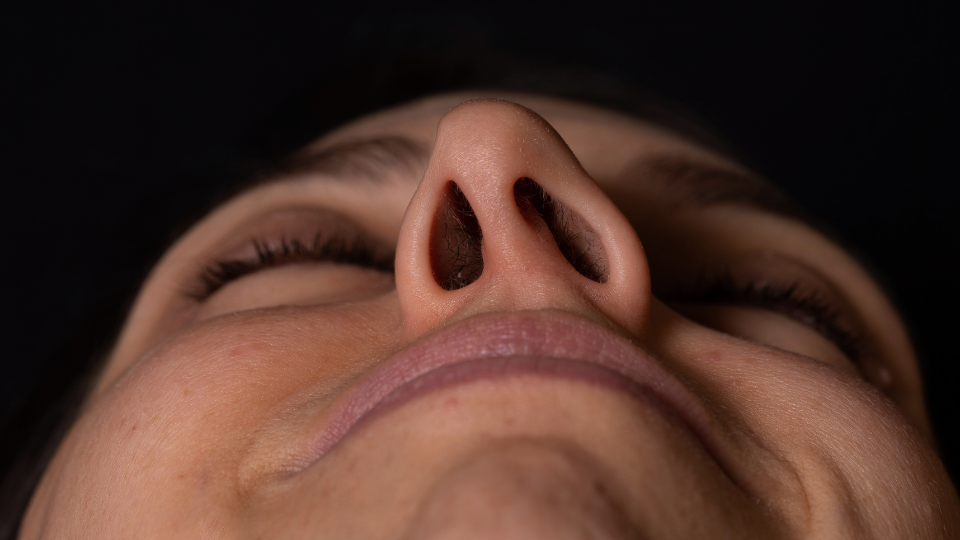Deciding whether or not to have surgery to correct a deviated septum is a personal decision that should be made after carefully considering the benefits and risks with your doctor. The decision to have surgery should be based on the severity of your symptoms and how much they affect your quality of life. There are both surgical and non-surgical options for treating a deviated septum. At ENT & Allergy Centers of Texas, we guide our patients on their treatment options.
What is a Deviated Septum?
Your septum is the piece of skin and tissue that separates the two sides of your nose. A healthy septum should sit in the middle of the nose, providing equal space for airflow in both nostrils. For many people, the septum is slightly off-center, which can result in a deviated septum. While mild cases may not cause noticeable symptoms, more severe deviations can lead to chronic nasal congestion, snoring, frequent sinus infections, and difficulty breathing.
Non-Surgical Treatments for a Deviated Septum
Before considering surgery, your provider may prescribe other treatments like medications to improve your symptoms and quality of life. Standard prescriptions for a deviated septum are:
Nasal Sprays
Steroid nasal sprays are often the first line of treatment. These sprays can reduce inflammation in the nasal passages, making it easier to breathe through the nose. However, this treatment won’t fix the underlying structural issue.
Decongestants
Decongestant medications can temporarily open your nasal passages, reducing swelling and helping you breathe more comfortably. While they can provide relief, they should not be used for extended periods due to the risk of dependency or rebound congestion.
Antihistamines
If allergies aggravate your symptoms, antihistamines may help reduce nasal congestion, sneezing, and mucus production. Like nasal sprays and decongestants, antihistamines won’t correct the deviation but can relieve symptoms.
When is Surgery Necessary?
If you’ve tried non-surgical options and still experience persistent and uncomfortable symptoms, you may be a candidate for septoplasty, a surgical procedure to correct a deviated septum. Here are some signs that surgery might be the best option for you:
Chronic Nasal Congestion
If one side of your nose is consistently blocked and other treatments haven’t provided relief, septoplasty might be necessary to open the airway and allow for normal breathing. This procedure straightens the septum, restoring balance to both nasal passages and relieving the symptoms of nasal obstruction.
Frequent Sinus Infections
A deviated septum can contribute to repeated sinus infections by obstructing normal drainage. If you’re dealing with chronic sinusitis despite medical treatments, surgery can help improve airflow and reduce your risk of future infections.
Sleep Apnea or Snoring
A deviated septum can worsen sleep-related issues, such as snoring or obstructive sleep apnea. If your condition affects your sleep quality or leads to excessive daytime fatigue, surgical correction may help improve airflow during sleep.
Persistent Nosebleeds
Frequent nosebleeds are another possible symptom of a deviated septum. If you’re experiencing recurring nosebleeds that don’t respond to conservative treatments, surgery may help reduce the irritation inside your nose, lowering the risk of bleeding.
What Can I Expect from Septoplasty Surgery?
Septoplasty is typically an outpatient procedure, meaning you’ll go home the same day. During the surgery, your ENT surgeon will reposition or remove the deviated parts of your septum to straighten it and improve airflow. The procedure usually takes about an hour, and most patients can return to normal activities within a week or two. Our experienced team at The ENT & Allergy Centers of Texas will work with you to ensure a smooth recovery and optimal results.
What are the Benefits of Septoplasty?
The primary goal of septoplasty is to improve nasal breathing, but it can also offer several other benefits. By restoring proper airflow, you may notice fewer sinus infections, better sleep, and less nasal congestion, leading to an improved quality of life. If a deviated septum contributes to your snoring, surgery may significantly reduce this issue, benefiting you and your sleep partner.
Deviated Septum Expert Treatment at ENT & Allergy Centers of Texas
If you’re dealing with persistent symptoms of a deviated septum and want to explore your treatment options, The ENT & Allergy Centers of Texas are here to help. Our board-certified ENT specialists provide personalized care, including expert diagnosis and treatment of nasal issues. With eight locations across North Texas, we’re conveniently located to serve your needs. Discover our sinus specialists from Frisco to Flower Mound and other locations throughout the state.
Contact us today to schedule a consultation and find out if septoplasty is the right option for you.




